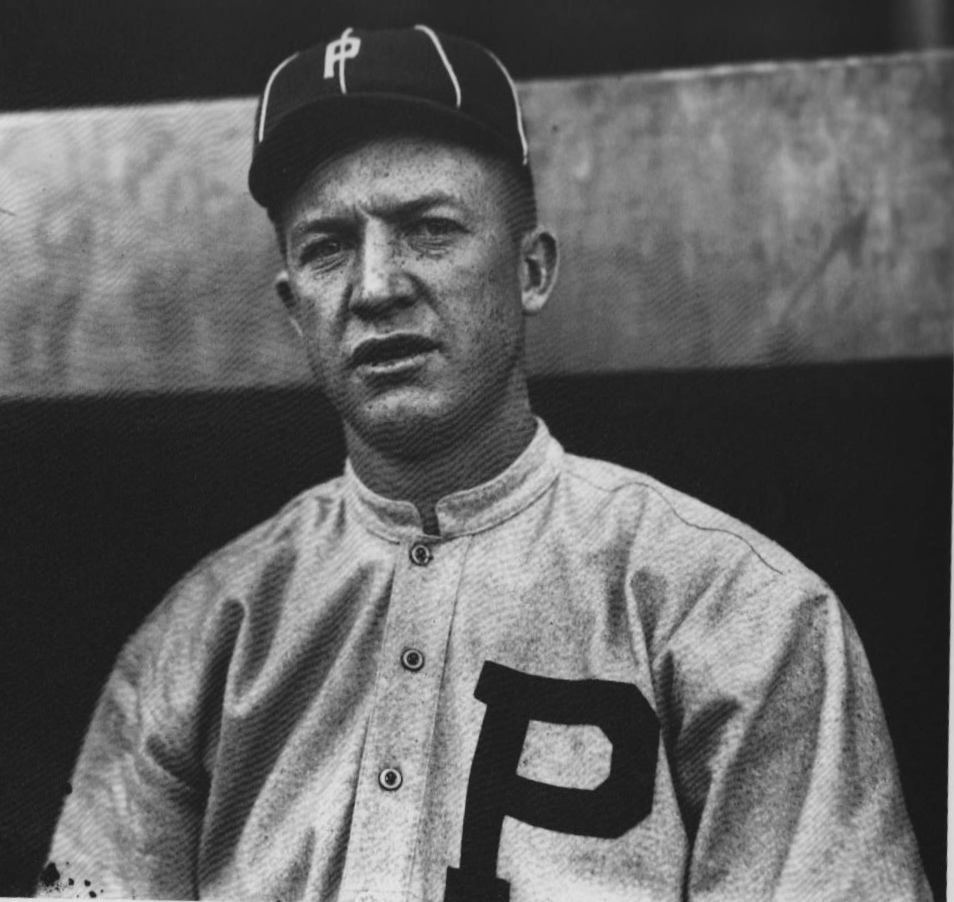GPeterPeteoPetevPeteePeterPete PeteCPetelPeteePetevPeteePetelPeteaPetenPetedPete Pete‚PeteÄPeteúPetePPeteePetetPeteePete‚PeteÄPeteĚPete PeteAPetelPeteePetexPeteaPetenPetedPeteePeterPete (Grover Cleveland Alexander)

Hall of Fame Major League Baseball Player. He played Major League Baseball for 20 seasons (1911 to 1930) with the Philadelphia Phillies, Chicago Cubs and St. Louis Cardinals. Considered one of the greatest pitchers to ever play the game, he broke in with the Phillies in 1911, and immediately established himself as a premier player, winning a National League leading 28 games his rookie season, and establishing a rookie record that still stands today. Additionally, he led the League in shutouts with 7, complete games with 31, and innings pitched with 367, all still single season rookie records (four of his seven shutouts were in consecutive starts). From 1914 to 1917 he was the most dominating player in the game, leading the National League in wins all four years with an astounding 31, 33, and 30 in consecutive seasons (his 33 wins in 1916 still stand as a Phillies team record). His 31 wins in 1915 helped the Phillies win their first National League pennant. In that year’s World Series against the Red Sox, he won Game 1 with a score of 3 to 1, a victory that would be the only World Series game won by the Phillies until October 1980, a span of 65 years. In Game 3 of the Series he lost a 2 to 1 pitchers’ duel with Rube Foster (the Red Sox would eventually win the Series 4 Games to 1). When the United States entered World War I he joined other Major League ball players in enlisting in the United States Army, and served as a Sergeant in an Artillery battalion in France, suffering shell shock while there. In contrast to his great ability, he was a consummate free spirit, and an insubordinate rule breaker. Those aspects, as well as a worsening case of epilepsy and severe bouts of alcoholism, caused the Phillies to trade him to the Chicago Cubs after the 1917 season in what would become one of the worst trades in Baseball history. Although never quite the pitcher he once was, he would star with the Cubs, leading the League in wins in 1920 with 27. His alcoholism would progressively worsen as he aged, and the Cubs, tired of his drinking bouts, sold him to the St. Louis Cardinals in the middle of the 1926 season. He would win 9 games (with 7 losses) for his new team, and helped them to the World Series, where he showed he was still capable of being a premier pitcher. That Series pitted Babe Ruth’s New York Yankees against the Cardinals. Pete Alexander won the opening game, and again won Game 6 to tie up the series, but his best performance was reserved for the deciding Game 7. He would be called on to relieve Cardinal’s pitcher Jesse Haines in the 7th inning and to preserve a 3-2 lead. Despite having a hangover, he struck out Yankee great Tony Lazzeri on three pitches with the bases loaded to end the inning. He would pitch two more scoreless innings, and get the save when Babe Ruth was thrown out in a Series ending stolen base attempt. He would find a little more success with the Cardinals, winning 21 games in 1927 and helping them back to the World Series in 1928. That Series saw the Yankees sweep the Cardinals, with Pete Alexander losing Game 3. His last two years, one spent with the Cardinals and one back with the Phillies, saw him in as an ineffective pitcher, and he was out of baseball after the 1930 season. Still battered by alcoholism and epilepsy, he would play for barnstorming teams up until age 51. In 1938 his accomplishments in baseball were forever recognized, and he was inducted into Baseball’s Hall of Fame. His overall achievements on the ballfield have been equaled by few players. He led the League in Wins six times, Complete Games six times, Shutouts seven times, Innings Pitched seven times, Strikeouts six times, and Earned Run Average five times. He is the only pitcher in Baseball history to win the Pitching Triple Crown three consecutive years. He won over 20 games nine times, and over 30 games three times. He had a single season ERA under 2.00 six times. He currently ranks on the All-Time list 3rd in Wins (373 – tied with Christy Mathewson), 13th in complete games (435), and 2nd in shutouts (90). In sixteen appearances against him, Babe Ruth would only accomplish a single. His 1915 1.22 single season ERA stood as a record until 1968, when Cardinals Hall of Famer Bob Gibson surpassed it (and is the only one to do that since). When he died he was at his typewriter writing a letter to his divorced wife. A month before his death he attended a Phillies-Yankees World Series game, and stood unnoticed and unrecognized before a sportswriter saw him and invited him to watch the game from the press box. (bio by: Russ Dodge) ¬†Family links: ¬†Parents: ¬†William Alexander (1849 – 1916) ¬†Maggie J. Coottey Alexander (1850 – 1932) ¬†Siblings: ¬†William C. Alexander (1870 – 1954)* ¬†George F Alexander (1872 – 1918)* ¬†Nicholas J. Alexander (1874 – 1950)* ¬†Mary Maggie Alexander Jefferies (1877 – 1914)* ¬†Alva Alexander (1879 – 1967)* ¬†Grover Cleveland Alexander (1887 – 1950) ¬†Warren Alexander (1889 – 1963)* ¬†Edgar Owen Alexander (1891 – 1896)* ¬†Raymond Sylvester Alexander (1895 – 1933)* *Calculated relationshipCause of death: Heart Failure
Born
- February, 26, 1887
- USA
Died
- November, 11, 1950
- USA
Cause of Death
- Heart Failure
Cemetery
- Elmwood Cemetery
- Nebraska
- USA

